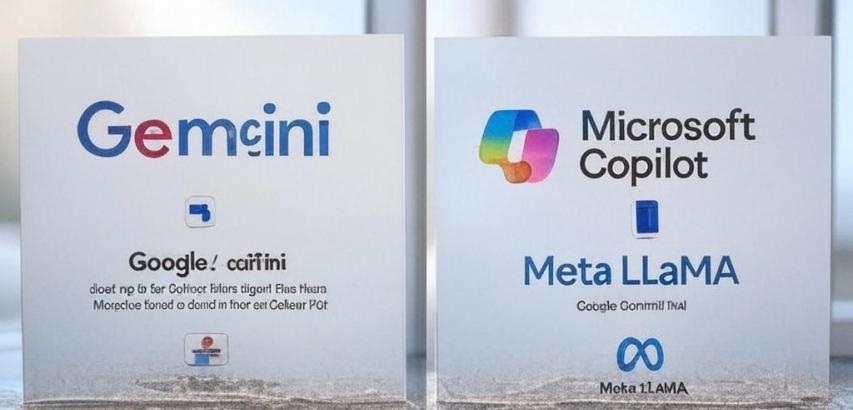Here’s a detailed comparison table between Google Gemini, Microsoft Copilot, and Meta LLaMA across 15 key aspects. These models represent some of the most advanced AI systems developed by Google, Microsoft, and Meta.
| Aspect | Google Gemini | Microsoft Copilot | Meta LLaMA |
|---|---|---|---|
| Developer | Google (DeepMind) | Microsoft (with OpenAI partnership) | Meta (formerly Facebook) |
| Release Date | Expected late 2023 or 2024 | Integrated into Microsoft products (e.g., Bing, Office) since 2023 | LLaMA 1 (Feb 2023), LLaMA 2 (July 2023) |
| Architecture | Multimodal (text, images, video, audio) | GPT-based (e.g., GPT-4) | Transformer-based, optimized for efficiency |
| Training Data Size | Massive, multimodal datasets (text, images, video, etc.) | Large-scale, multi-source (web, books, etc.) | Smaller, high-quality datasets (focused on efficiency) |
| Primary Use Cases | Multimodal tasks (e.g., video analysis, image generation, text synthesis) | Productivity tools (e.g., coding, Office automation, Bing search) | Research, open-source AI, and lightweight applications |
| Languages Supported | Multilingual (strong in English and major languages) | Multilingual (optimized for English and Microsoft ecosystem languages) | Multilingual (focus on research languages) |
| Customization | Enterprise-level customization for multimodal tasks | Fine-tuning via Azure OpenAI Service | Open-source, highly customizable for researchers |
| API Access | Expected via Google Cloud AI | Available via Azure OpenAI Service and Microsoft 365 | Open-source (no API, but downloadable for local use) |
| Performance in Multimodal Tasks | Superior (designed for multimodal integration) | Limited to text and some image tasks (via GPT-4 Vision) | Text-only (no native multimodal capabilities) |
| Ethical Guidelines | Aligned with Google’s AI principles | Aligned with Microsoft’s responsible AI framework | Open-source, community-driven (with Meta’s ethical guidelines) |
| Commercial Availability | Enterprise-focused (via Google Cloud) | Integrated into Microsoft 365, Bing, and Azure | Open-source (free for research and non-commercial use) |
| Integration | Google Workspace, YouTube, Google Cloud | Microsoft 365, Bing, Azure, GitHub Copilot | Limited (open-source, requires manual integration) |
| Real-time Knowledge | Likely integrated with Google Search and real-time data | Real-time data via Bing and Microsoft Graph | No real-time knowledge (static training data) |
| User Interface | Google Cloud Console, Workspace integrations | Microsoft 365 apps, Bing Chat, Azure portal | Command-line and open-source tools |
| Pricing Model | Usage-based (via Google Cloud) | Subscription (Microsoft 365), usage-based (Azure OpenAI) | Free (open-source) |
Key Takeaways:
Multimodal Capabilities: Google Gemini excels in multimodal tasks (text, images, video), while Copilot and LLaMA are primarily text-focused.
Integration: Microsoft Copilot is deeply integrated into Microsoft’s ecosystem (Office, Azure, Bing), while Gemini targets Google’s ecosystem (Workspace, Cloud).
Open-Source: Meta LLaMA is open-source, making it ideal for researchers and developers who want full control over the model.
Commercial Use: Copilot and Gemini are enterprise-focused, while LLaMA is more suited for research and non-commercial applications.
Real-time Data: Copilot and Gemini leverage real-time data (via Bing and Google Search), while LLaMA relies on static datasets.
 |  |  |
